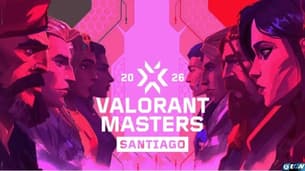
From Virtual Arenas to Real Stakes: How Esports Culture Reflects the Rise of Real Money Gaming

As the competitive gaming industry continues its meteoric rise, striking parallels are emerging between the high-octane world of esports and the growing digital gambling ecosystem, where real money online casinos have begun to mirror aspects of competitive gaming culture. Esports fans are already accustomed to high-pressure decision-making, rapid reflexes and the thrill of unpredictable outcomes—qualities that closely align with those experienced in virtual betting environments.
Skill and Strategy Over Sheer Luck
Real money gaming and esports are two worlds that require a well-crafted strategy and skill for one to succeed. Take, for instance, competitive video games such as Counter-Strike 2, League of Legends and Dota 2. They require players to think on their feet, have flawless mechanics and possess extensive knowledge of maneuvers and strategies. Also, several real money games like poker require not only luck but also skill in identifying one’s opponents, calculating odds and predicting the probable outcome of the game.
In addition, the increasing number of viewers who tune in to watch live-streamed poker tournaments on Twitch highlights the correlation between esports and poker. These broadcasts attract substantial audiences because of the stakes on offer, but even more so, the cognitive battleground on full display, similar to clutch plays in esports finals.
High-Value Virtual Assets and Digital Economies
Economies within gaming have long existed. There's blending worlds of earning achievements within a game, such as CS2 skins that sell for thousands to collectible cards in Hearthstone. Virtual items have continued to profit in the real world. In-game assets have value and are exchanged and it's understood in the realm of professional gaming and esports.
This can also be seen with players trying their luck with real cash on the internet, where currencies used in games, bonuses and jackpots have value that can be an engaging form of entertainment. Economies in both gaming and gambling see players making value-based decisions that revolve around cost-benefit analysis, scarcity of resources, forgone alternatives, or opportunity cost.
Personality-Driven Content, Streaming and Spectatorship
Both industries have been transformed by live streaming. A good portion of esports has been driven by Twitch and YouTube Pro, which show professional gaming matches that are broadcast for casual viewing. Alongside it, online casino streamers who put the pedal to the metal with large betting and interact with viewers every spin bring the excitement and adrenaline of last-second victory in games.
These streamers, whether they're unboxing loot or spinning a digital slot reel, share a core trait: they entertain through unpredictability. And their audiences, drawn by personality as much as playstyle, reflect the same community-driven engagement that defines esports fandom.
The Competitive Mindset: Tilt Management and Tactical Analysis
In any modern competitive scene, emotional control is a prerequisite. When esports competitors discuss tilt, they refer to a specific state of cognitive frustration that inhibits decision-making. Similarly, casino players, seasoned gamblers for example, are required to remain calm under pressure, exercising self-discipline vis-à-vis bankroll management and refraining from placing impulsive bets.
Both demand a certain level of innate skill, but in the first instance, fortitude is critical. Players analyze their game’s video recordings or their betting history, looking for specific patterns or trends to optimize their strategies. There is strong evidence that the mindset sharpened in esports is expanded upon by seasoned players in casinos who have formulated self-optimizing strategies over time. Each playing the game.
Shared Challenges: Regulation and Responsible Participation
The crossover audiences and digital-first nature of esports and real money gaming present similar regulatory challenges. Age restrictions, transparency and maintaining ethical standards become paramount for both industries.
The Esports Integrity Commission (ESIC) as well as national gambling regulators are developing protective measures for players and audiences. With the growing adoption of hybrid models that integrate esports betting alongside real money tournament entries, there is an increasing demand for shredded regulations focused on user education as mitigation of clear abuse of power abuse standards becomes apparent.
Convergence Ahead: Hybrid Models and Future Innovations
While they don't exist yet, concepts such as blockchain technologies, NFTs and the growing obsession with pay-to-earn schemes are already blurring the line between gambling and gaming. We may see future esports platforms with performance-based economies that reward players in crypto-tokens, tradable assets, or even tiered prize pools.
Currently, there is no lack of imagination when it comes to skill-based casino games that feel like esports tournaments. The blend of AI-powered matchmaking with PvP betting arrangements and game-specific leaderboards makes it possible to combine a rapidly growing form of gambling with esports.
Conclusion: One Ecosystem, Many Outcomes
There is a growing gap between esports and real money online casinos and their regulatory structures, but the culture and technology of both industries are rapidly getting intertwined. The ceaseless striving for mastery and the thrill of competition make both industries appealing from a reward standpoint.
Realistically, consoles and PCs are turning into an open playing field for esports enthusiasts and acknowledging the “free-for-all” concept of competing on streams with monetary rewards changes their perception towards traditional gaming. Cavalry clashes, strategic movements at the virtual tables and other mercenary-like feats are in the works and skillfully merging these elements shapes the future of entertainment.

Elen Stelmakh ist eine kreative Person, die sich der Förderung der Gaming-Kultur durch Artikel und visuelle Gestaltung verschrieben hat. Als hauptberufliche EGamersWorld-Autorin und Designerin für eine Gaming-Website erstellt Elen nicht nur Inhalte, sondern erfüllt sie auch mit Energie und Kreativität.
 Roblox Meta Lock Codes März 2026Holen Sie sich die besten Roblox Meta Lock Codes und steigern Sie Ihr Gameplay.
Roblox Meta Lock Codes März 2026Holen Sie sich die besten Roblox Meta Lock Codes und steigern Sie Ihr Gameplay. VALORANT Masters Santiago 2026 – ÜbersichtVALORANT Masters Santiago 2026 Leitfaden: Teams, Termine, Format und 1 Million Dollar Preisgeld.
VALORANT Masters Santiago 2026 – ÜbersichtVALORANT Masters Santiago 2026 Leitfaden: Teams, Termine, Format und 1 Million Dollar Preisgeld. VALORANT Masters Santiago 2026: Vollständige Team-Tierliste und Pick'Em-GuideDie VALORANT Masters Santiago 2026 stehen kurz bevor. Wir analysieren die vollständige Tier-Liste, erklären die Chancen jedes Teams und teilen unsere Pick’Em-Vorhersagen, damit ihr die Favoriten
VALORANT Masters Santiago 2026: Vollständige Team-Tierliste und Pick'Em-GuideDie VALORANT Masters Santiago 2026 stehen kurz bevor. Wir analysieren die vollständige Tier-Liste, erklären die Chancen jedes Teams und teilen unsere Pick’Em-Vorhersagen, damit ihr die Favoriten Vorschau auf die Dota 2 DreamLeague Saison 28 PlayoffsErfahre alles über die DreamLeague Season 28 Playoffs: Teams, Format, Preispool und Vorhersagen.
Vorschau auf die Dota 2 DreamLeague Saison 28 PlayoffsErfahre alles über die DreamLeague Season 28 Playoffs: Teams, Format, Preispool und Vorhersagen.





